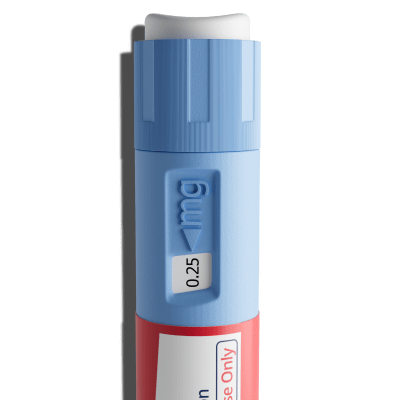Content
View weight loss medications
Massive New Study Links Viagra Use to Reduced Risk of Alzheimer’s Disease

You know Viagra® as the world’s most popular treatment for erectile dysfunction, but new research out of the U.K. indicates that it may also be useful in the treatment of Alzheimer’s disease.
The cohort study, released this week by researchers at the University College of London School of Pharmacy, analyzed data from nearly 270,000 patients who were diagnosed with erectile dysfunction from 2000 to 2017 and found that men who were prescribed Viagra (or its generic version, sildenafil) were a staggering 18 percent less likely to develop Alzheimer’s disease than men who weren’t.
Content
Even more surprising, the research concluded that there may be a correlation between how much Viagra men took and their susceptibility to Alzheimer’s—men who received 20 or more prescriptions of Viagra or sildenafil over the study’s five-year follow-up period were even less likely to develop Alzheimer’s.
"Despite the fact that Alzheimer's disease is the most common form of dementia, we still know so little about it,” says Jessica Yu, Ph.D., a clinical psychologist and Senior Director of Patient Experience at Hims & Hers.
According to data from the National Institutes of Health (NIH), Alzheimer’s disease is the single-most common form of dementia, and by the year 2050 is expected to affect as many as 16 million Americans.
“We don't know what causes it, and we don't have a cure for it,” says Dr. Yu. “This study may represent a huge leap in our ability to reduce the incidence and burden of this disease.”
Alzheimer’s is a progressive neurodegenerative disease that not only affects a person’s memory, but also interferes with bodily functions and quality of life. According to the Alzheimer’s Association, it kills more people every year than breast and prostate cancer combined.
genuine Viagra® makes it possible
One thing that makes this new study so compelling, however, is its size. It’s one thing to say that sildenafil can reduce the risk of Alzheimer’s in mice or a small sample size of humans, but to look at the health records of almost 270,000 men and compile real-world data? That’s big.
And these weren’t just self-reports, either. Researchers looked at primary care data with prescription records and diagnosis codes, which offers a more robust — and accurate — look into the relationship between Viagra and Alzheimer’s disease treatment.
This isn’t the first time researchers have poked around at a relationship between Viagra—a member of the phosphodiesterase-5 (PDE5) inhibitors class of medication—and Alzheimer’s disease.
A 2020 study featured in the Journal of Alzheimer’s Disease Reports found that just one dose of sildenafil increased cerebral blood flow, decreased spontaneous neural activity, and increased the cerebral metabolic rate of oxygen in the brains of mice with Alzheimer’s disease.
“Viagra, and similar drugs used to treat erectile dysfunction, work by increasing blood flow to the penis, so it’s not surprising that they also appear to increase blood flow to the brain,” says Dr. Daniel Lieberman, Clinical Professor of Psychiatry and Behavioral Sciences at George Washington University and SVP of Mental Health at Hims & Hers.
And a 2017 study, in which researchers administered single doses of sildenafil to 12 human patients with Alzheimer’s disease, noted similar observations.
This type of population-based research study is similar to another large recently published study that linked use of PDE5 inhibitors to improved long-term cardiovascular health, according to Dr. Peter Stahl, SVP of Sexual Health at Hims & Hers. “Although they do not prove cause and effect,” Dr. Stahl says, “recent population-based studies on the potential brain and heart benefits of PDE5-inhibitors are exciting developments that hint at the potential of these drugs to do much more than support sexual function.”
5 Sources
- Adesuyan, M., Yogini, J. H., Alsugeir, D., Howard, R., Ju, C., Wei, L., & Brauer, R. (2023, May 19). Phosphodiesterase Type 5 Inhibitors in Men With Erectile Dysfunction and the Risk of Alzheimer Disease. Retrieved February 8, 2024, from https://www.neurology.org/doi/10.1212/WNL.0000000000209131
- Doctrow, B. (2021, December 14). Viagra associated with reduced risk of Alzheimer's disease. National Institute on Aging. Retrieved February 8, 2024, from https://www.nia.nih.gov/news/viagra-associated-reduced-risk-alzheimers-disease
- Alzheimer's Facts and Figures Report. (n.d.). Alzheimer's Association. Retrieved February 8, 2024, from https://www.alz.org/alzheimers-dementia/facts-figures
- Sanders O. Sildenafil for the Treatment of Alzheimer's Disease: A Systematic Review. J Alzheimers Dis Rep. 2020 Apr 22;4(1):91-106. doi: 10.3233/ADR-200166. PMID: 32467879; PMCID: PMC7242821.
- Sheng M, Lu H, Liu P, Li Y, Ravi H, Peng SL, Diaz-Arrastia R, Devous MD, Womack KB. Sildenafil Improves Vascular and Metabolic Function in Patients with Alzheimer's Disease. J Alzheimers Dis. 2017;60(4):1351-1364. doi: 10.3233/JAD-161006. PMID: 29036811; PMCID: PMC5805465.
Editorial Standards
Hims & Hers has strict sourcing guidelines to ensure our content is accurate and current. We rely on peer-reviewed studies, academic research institutions, and medical associations. We strive to use primary sources and refrain from using tertiary references. See a mistake? Let us know at blog@forhims.com!
This article is for informational purposes only and does not constitute medical advice. The information contained herein is not a substitute for and should never be relied upon for professional medical advice. Always talk to your doctor about the risks and benefits of any treatment. Learn more about our editorial standards here.

Peter J. Stahl, MD
Dr. Peter J. Stahl is the SVP of Male Reproductive and Sexual Medicine at Hims & Hers Health. Prior to joining Hims & Hers, Dr. Stahl served as the Director of Male Reproductive & Sexual Medicine at New York-Presbyterian Hospital and Associate Professor of Urology at the Columbia University Vagelos College of Physicians and Surgeons from 2012-2020.
He completed his undergraduate studies at Cornell University, and subsequently attended medical school and completed his urology residency at New York Presbyterian-Hospital/Weill Cornell Medical College in New York City.
Following residency, Dr. Stahl completed two years of fellowship training in male reproductive medicine, microsurgery, sexual medicine, and penile reconstructive surgery at both Weill Cornell Medical College and Memorial Sloan-Kettering Cancer Center. Dr. Stahl is a recognized leader in the medical and surgical treatment of sexual disorders that affect men.
He has published more than 45 articles in peer-reviewed medical literature, serves as a reviewer for several major academic journals and is a member of numerous professional associations — including the American Urological Association and the International Society of Sexual Medicine.




